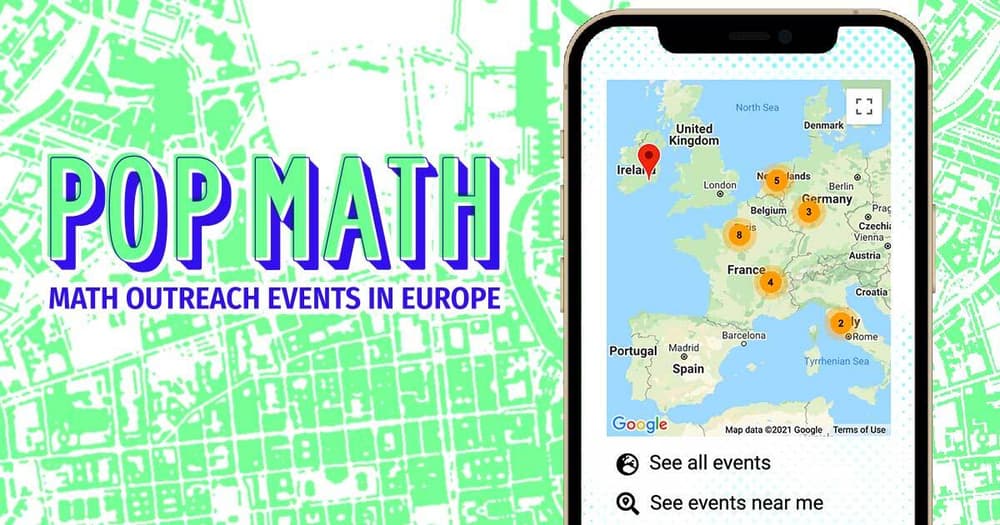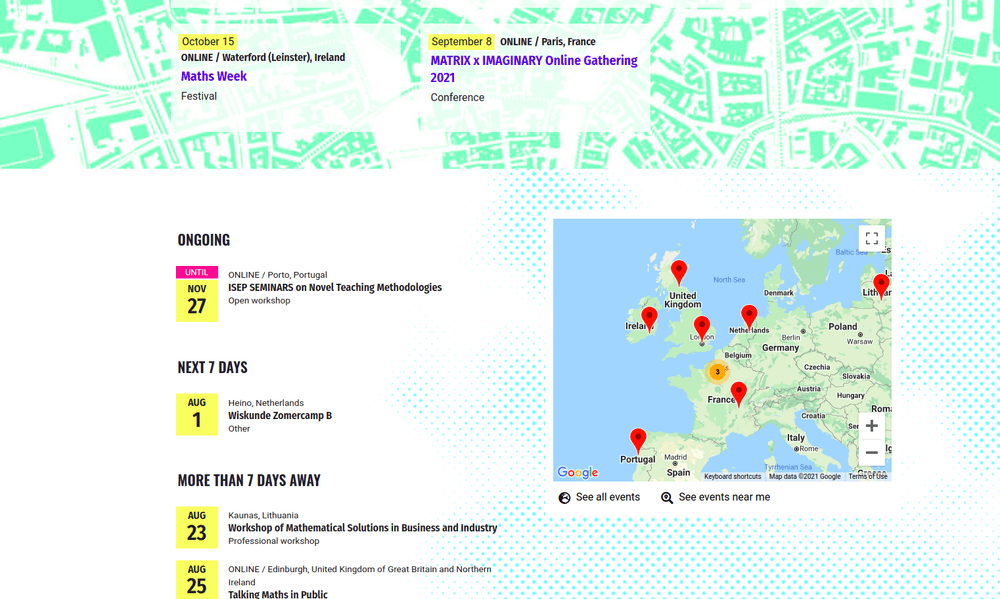Communication of Mathematics is growing. Some years ago, communication was done by writing some books, giving a few public talks and preparing the occasional exhibit, or in rare cases, opening a mathematics museum. Most of these efforts were aimed at young people, and very few serious academic mathematicians were interested in taking part in these activities.
Nowadays, outreach activities are essential in every math department or scientific institution, and even outside the world of academics one can find dedicated mathematics outreach organizations or professional math communicators. Promoting math, and more generally STEM disciplines, is considered not only useful but crucial for the future development of the field and for the educational and economic growth of different countries. It has become something of a fundamental duty for all mathematicians.
Today, apart from an increasing production of books and public talks, there is a flourishing of new ideas: hands-on museums of mathematics, interactive exhibitions, theater shows and movies, web sites and YouTube channels, podcasts, documentaries, graphic novels, and even activities related to dance and other performing arts.
As the Raising Public Awareness Committee of the European Mathematical Society, we have been observing, registering, and even taking part in this trend for many years, and we have long been aware of the difficulty in creating a true European or international network connecting these initiatives. All too often, similar initiatives are started in different countries from scratch, there are few opportunities to share the different experiences, and it is very difficult to have an overview of what is happening in other regions. Even a simple database recording all math awareness events across Europe was missing.
For all these reasons, as a committee, we decided to start a sort of map/calendar on which all the outreach events in mathematics in Europe could take their place. It was based on similar ideas of interactive maps with events used by the international non-profit organization IMAGINARY and the International Day of Mathematics. The big difference with our idea is that it is intended to be a joint effort and an open calendar, so that everybody – without even the need for a user account – can easily publish and promote their own mathematics outreach events. And of course, everybody should be able to use the calendar to locate ongoing and upcoming events around their own city!
But just as this project was under construction, the world was hit as we all know by the pandemic, and we had to stop and re-think how to restructure this map/calendar to take into account the big changes that were taking place everywhere. Suddenly, all the face-to-face events that we would have liked to collect, advertise and archive had disappeared, replaced, maybe temporarily, by dozens of online events on various platforms, often with participants dispersed in various corners of the world.
It was certainly a dramatic turning point, and even activities to promote mathematics had to quickly adapt to this new situation, which in spite of all the negative consequences we faced also brought surprising new opportunities. In just a few months, everybody’s habits have changed; now, connecting from Europe to follow an event in Australia or the United States has become completely normal. Naturally, our project had to take all this into account.
Finally, in January 2021 we came out with our new website dedicated to the collection of outreach events in Europe and the rest of the world: Pop Math www.popmath.eu
The website displays, on a world map, the announcements of all mathematics outreach events for a general audience, as well as academic or professional events concerning mathematics outreach. The events can be commercial or non-profit, online or in-person, and have a limited duration. To feed the database, we decided to rely on the math community. Everybody who wishes can submit an event from this page: www.popmath.eu/submit-event
While the main goal is still the creation of a virtual place to find and share all the events of mathematical outreach in a simple way, Pop Math is also an archive of everything happening in the field, since it has the ability to preserve links to all past events; this is particularly useful for the online events. You will be surprised by the amount and type of events on Pop Math: from an international mathematics engagement conference organized in collaboration between Paris, New York and Berlin to talks in local languages on numbers, mathematics and climate or artificial intelligence, from large national math festivals to new traveling exhibitions. And some events are also physical, or even hybrid, combining the real and the virtual worlds.
In the future, and with the collaboration of the mathematical community, we aim to improve our initiative in various directions. One of the possible new features we hope to implement is the creation of an applet to embed our map in every (third party) site, by giving some customization choices to the systems managers to take into account some regional realities. Another direction would be to create the first directory of all individuals and groups active in math outreach, so as to aid and simplify the organization of local events and to assist people in academic institutions to improve their communication of math to every type of audience.
We hope everyone will be able to take advantage of, appreciate and contribute to Pop Math!
Cite this article
Andreas Matt, Roberto Natalini, Pop Math: find math everywhere!. Eur. Math. Soc. Mag. 121 (2021), pp. 48–49
DOI 10.4171/MAG/46

